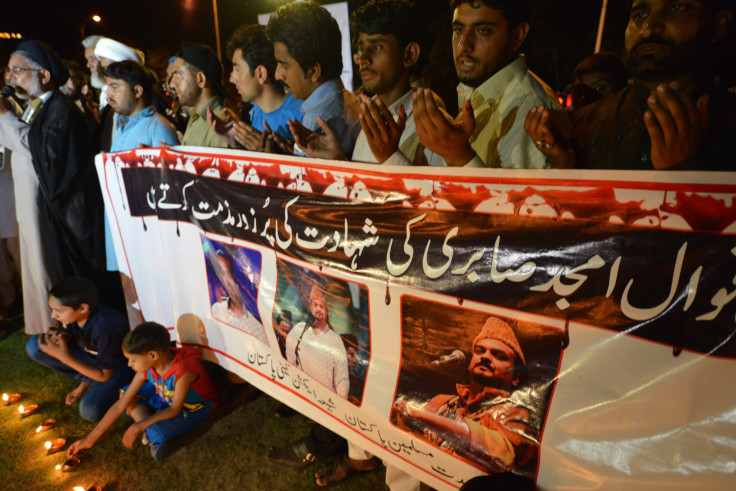Amjad Sabri, Renowned Pakistani Qawwali Singer, Shot Dead In Karachi

Amjad Sabri, one of the world’s most famous singers of “qawwali” — a genre of devotional music from the Sufi tradition — was shot dead by unknown assailants in the Pakistani city of Karachi Wednesday in an attack security forces termed a “targeted killing and an act of terrorism.” Thousands of mourners, relatives and friends gathered outside the 45-year-old singer's home in Karachi Thursday to join his funeral procession, carried out amid tight security.
“Two men on a motorcycle intercepted Mr. Sabri’s white Honda Civic at under the Sharifabad bridge, and shot him five times,” Zulfiqar Larik, a senior police official in Karachi, reportedly said. “He suffered a head injury which killed him.”
Although a faction the Taliban has claimed responsibility for the killing of the “blasphemous” singer, it is not yet clear if the claim is credible.
Amjad Sabri, son of legendary Qawwali singer Ghulam Farid Sabri — who died in 1994 — was a member of the famed Sabri family, which founded the qawwali group “Sabri Brothers” in the 1950s. The group’s music is popular not only in Pakistan, but also across the border in India.

“We [qawali singers] are messengers of peace. We have no enemies,” Pakistani singer Rahat Fateh Ali Khan reportedly said. “We only send a message of happiness and peace. I’m overwhelmed with grief.”
Sufism is a centuries-old strand of Islam that urges Muslims to seek out god and divine love through direct personal experience — something they say can be achieved through methods like meditation, dancing, Zikr — wherein short sacred phrases are recited over and over again — and qawwali singing, which, through a musical rendition of the words of Sufi saints, seeks to put listeners in a trance-like state.
“In Pakistan, Sufism has become intertwined with the pre-existing local culture, incorporating Islam into old Hindu and South Asian customs like praying to a saint; having a religious leader, known as a pir, prominently displayed in homes; and scattering rose petals on the tombs in shrines,” Michel Boivin, a senior researcher at University of Paris’ Center for South Asian Studies, told Al-Jazeera.
Although adherents of the mystical and moderate sect are spread across the Indian subcontinent, and even in countries like Turkey and Iran, most hardline Shiite and Sunni groups, including the Taliban and the al Qaeda, frequently denounce them as heretical. Members of the Taliban have, in the past, targeted Sufi shrines and gatherings.
In October 2010, for instance, nine people were killed in two suicide blasts carried out by Taliban militants at the Abdullah Shah Ghazi shrine in Karachi. Prior to that, in July, over 40 people died in an attack on another Sufi shrine in Lahore.
© Copyright IBTimes 2024. All rights reserved.





















